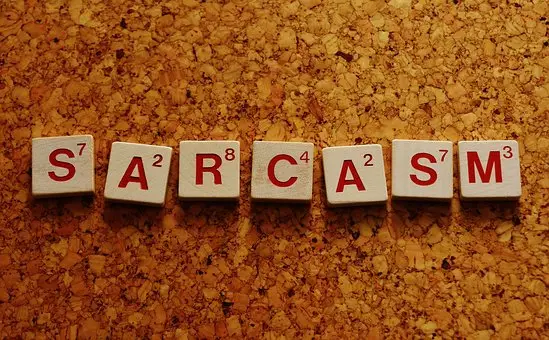I love all writing and research from Shaunti Feldhahn. Here is another great blog by her and don’t forget to check out her new book, The Kindness Challenge.
There are two types of people in the world: those with the quick zinger and the envious wannabes. I’ve always wished I was more quick-witted at pulling out the perfect sarcastic remark when joking with my friends. But I don’t have the sarcasm gene! Even my attempts to trash talk during family game night are lame.
Recently, though, I’ve seen “the perfect zinger” in a completely different light. The results from the research for my newest book, The Kindness Challenge showed that even good-natured sarcasm can take a heavy, secret toll. Not just for the recipient, but surprisingly also for the person making the jokes.
If you naturally tend toward sarcasm here are six reasons to keep the funny bone but cut back on the zingers:
- People stop trusting you
Think about it: aren’t you wary of someone who is frequently sarcastic with you? That’s the way others view you. They figure if you so easily make fun of them (even if it’s “all in good fun”), you’re not someone with whom they can share important things that matter to them. Now, if the other person knows with 100% certainty that you care about them and the zingers are infrequent, then the jokes are just seen as jokes. But if either of those conditions are broken, people will doubt your care for them and keep themselves at a distance.
- You’re training yourself to be cruel.
Of course you don’t think of it that way. But those quick-witted, sarcastic remarks that are so funny are mostly funny to you. The person you’re talking to may laugh and joke back, but they secretly sense a cutting truth behind the teasing. Or that the humor was trying to put them in their place. Neither feels good… and that’s a feeling you are imposing over and over again.
- You won’t get an honest opinion.
If you’re known as someone who always makes funny, biting remarks, you are almost certainly ensuring that you won’t hear people’s true opinions or beliefs. People are smart. It is far safer to keep their thoughts to themselves than to risk a sarcastic, and potentially embarrassing, response.
- Forget true closeness.
Real closeness requires real vulnerability. And guess what’s the one thing your friends and family feel they can’t have with you? And it goes both ways: you are probably holding yourself back from closeness too. In families and friend groups where there’s a lot of love but also a lot of sarcasm we found that everyone, without realizing it, put up walls and rarely shared what they were really thinking. Because if you do share a vulnerable, honest, feeling out loud, everyone is waiting for the moment when you turn it into a joke.
- Sarcasm tends to see the negative, not the positive
Sarcasm secretly feeds on itself. The more you notice those things worth the zinger in the people around you, the more negative things you find to insult rather than applaud. Sarcasm rarely or never seeks out the positive in people. Eventually, it will be difficult to find good in the person. Negativity breeds negativity.
- Sarcasm sets the tone of the room
Sarcasm is contagious. The more you use sarcasm, the more it spreads to others. And it sets the “no vulnerability here!” tone for the room.
Now, just to be clear: you don’t need to lose your sense of humor. Just use “the gift of the zinger” sparingly. Never, ever be sarcastic about someone else behind their back (that’s a sure way to train yourself to be deliberately cruel). And purposefully look for the positives in a person, not the negatives. You’ll notice a difference in yourself (hello, more joy!), and you’ll notice a difference in the relationships around you.
Do you recognize that perhaps you’ve damaged a relationship with sarcasm? Repair it with kindness. Do the 30-Day Kindness Challenge. During those thirty days, you say nothing negative to or about that person. You withhold all sarcasm, for example. And instead, each day you find something to sincerely praise and tell them, and tell someone else what you are grateful for in that person. You also do one small act of generosity for them.
You’ll be amazed at the results. Not only will it repair your relationship – it will change you.
Visit Shaunti’s website www.shaunti.com



